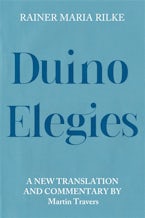
Title Details
300 Pages
22.8 x 15.2 cm
Series: Studies in German Literature Linguistics and Culture
Series Vol. Number:
210
Imprint: Camden House
The Shepherd, the Volk, and the Middle Class
Transformations of Pastoral in German-Language Writing, 1750-1850
- Description
- Contents
- Author
- Reviews
Analyzes the transformation of German-language pastoral from a portrayal of the idyllic lives of herdsmen into a vehicle for the concerns and aspirations of the middle class.
European pastoral tradition traces its roots to Theocritus's Idylls and Virgil's Eclogues, which portrayed herdsmen pursuing love and art. While the lives of shepherds, or of country folk generally, remain the ostensible subject of pastoral, Elystan Griffiths argues that in the German context after 1750 its central concerns were those of an emergent, nationally minded, creative middle class. These concerns became increasingly urgent in the face of the upheaval of the French Revolution and the need to respond to the rise of capitalist modernity. The Shepherd, the Volk, and the Middle Class traces how pastoral was transformed in the work of major German-language authors, including Gessner, "Maler" Müller, J. H. Voss, Goethe, Kleist, Mörike, and Nestroy, into a vehicle for serious moral, political, and social questions. Debates raged about whether present-day shepherds were fit to appear in literature, or whether the objects of pastoral should, rather, be the idealized shepherds of Arcadian prehistory or early Biblical times. Pastoral was thus bound up with cultural and political questions surrounding the relationships between the classes, the state of the peasantry, the nature of art, and most fundamentally the social constraints of the thinking subject amid the emancipatory promise of the Enlightenment.
European pastoral tradition traces its roots to Theocritus's Idylls and Virgil's Eclogues, which portrayed herdsmen pursuing love and art. While the lives of shepherds, or of country folk generally, remain the ostensible subject of pastoral, Elystan Griffiths argues that in the German context after 1750 its central concerns were those of an emergent, nationally minded, creative middle class. These concerns became increasingly urgent in the face of the upheaval of the French Revolution and the need to respond to the rise of capitalist modernity. The Shepherd, the Volk, and the Middle Class traces how pastoral was transformed in the work of major German-language authors, including Gessner, "Maler" Müller, J. H. Voss, Goethe, Kleist, Mörike, and Nestroy, into a vehicle for serious moral, political, and social questions. Debates raged about whether present-day shepherds were fit to appear in literature, or whether the objects of pastoral should, rather, be the idealized shepherds of Arcadian prehistory or early Biblical times. Pastoral was thus bound up with cultural and political questions surrounding the relationships between the classes, the state of the peasantry, the nature of art, and most fundamentally the social constraints of the thinking subject amid the emancipatory promise of the Enlightenment.
Introduction: Pastoral as a Way of Not Looking at the Country
Pastoral in the Enlightenment: Salomon Gessner's Idylls
"Wo giebts dann Schäfer wie diese?": Friedrich "Maler" Müller's Idylls of Cultural Renewal
Johann Heinrich Voss's Experiments with an Enlightened Idyll
Goethe and Schiller's Engagements with Pastoral: Facing the Post-Revolutionary World
Heinrich von Kleist: The Promises and Illusions of Pastoral
Pastoral in the Age of Capital: Eduard Mörike and Johann Nestroy
Conclusion
Pastoral in the Enlightenment: Salomon Gessner's Idylls
"Wo giebts dann Schäfer wie diese?": Friedrich "Maler" Müller's Idylls of Cultural Renewal
Johann Heinrich Voss's Experiments with an Enlightened Idyll
Goethe and Schiller's Engagements with Pastoral: Facing the Post-Revolutionary World
Heinrich von Kleist: The Promises and Illusions of Pastoral
Pastoral in the Age of Capital: Eduard Mörike and Johann Nestroy
Conclusion
"With his multilayered analysis, Griffiths has made the idyll newly accessible for social-historical readings. His book reminds us emphatically that it is still worthwhile to read this only apparently apolitical genre with precise attention to its social significance." Annika Hildebrandt, ZEITSCHRIFT FÜR GERMANISTIK
Hardcover
9781640140646
May 2020
£99.00 / $120.00
Ebook (EPDF)
9781787446762
May 2020
$29.95 / £24.99
Title Details
300 Pages
2.28 x 1.52 cm
Series: Studies in German Literature Linguistics and Culture
Series Vol. Number:
210
Imprint: Camden House















